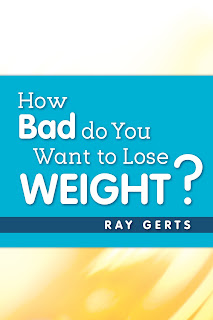Now studies show that 8 hours of sitting, which applies mainly to office workers, is just as bad as smoking and to go a step farther, if you're not exercising that also is just as bad for your health as smoking is. And if you're a smoker that doesn't exercise you need to get real friendly with your doctor. He's going to become your new best friend.
When you see someone smoking, you might question “Why would you do that to yourself when you know it could kill you?” Do you react the same way when you know someone doesn’t exercise? You should. Not exercising is a problem that affect everyone in America because we have lost the need to walk. Walking is the exercise that will help all that ails you. It gets your blood pumping and good circulation is key to good health. Especially in North America people drive everywhere. I'm guilty of driving to the mailbox on occasion. We only walk 4000 or so steps a day. Back in the day when we all lived without a car or only had one car per family we were much healthier just because we walked more and we ate more fresh foods.
Today smoking is not as common place as 50 years ago, but we had fewer cases of cancer as a percentage of population than we have today. Why, because we were more active and we ate more fresh foods. You wouldn’t dream of smoking (and if you do smoke, you’re likely trying to quit), so why poison yourself with inactivity? But many of us do. Nearly 80% of us don’t get the recommended amount of exercise. Many experts agree the inactivity epidemic is more concerning than the obesity epidemic. Far more people are inactive then obese, but because inactivity doesn't cause cancer then it isn't as important.
Today smoking is not as common place as 50 years ago, but we had fewer cases of cancer as a percentage of population than we have today. Why, because we were more active and we ate more fresh foods. You wouldn’t dream of smoking (and if you do smoke, you’re likely trying to quit), so why poison yourself with inactivity? But many of us do. Nearly 80% of us don’t get the recommended amount of exercise. Many experts agree the inactivity epidemic is more concerning than the obesity epidemic. Far more people are inactive then obese, but because inactivity doesn't cause cancer then it isn't as important.
The benefits of exercise are numerous and irrefutable. It helps prevent heart disease, diabetes, breast and colon cancer, dementia, depression, and more. If you exercise, chances are you’ll live a longer, healthier life. Period.
What’s so powerful about exercise? Take heart disease, for example. Heart disease is associated with inflammation in the body. Exercise is a natural inflammation fighter. When you move, your muscles send out anti-inflammatory chemicals.
Also, every time you get up and move, your blood sugar, cholesterol, and triglycerides improve. When you sit down, they get worse. It’s just about moving more. Most of us remember our grandparents and maybe they lived into their 90's, but in their generation, they walked a lot more and did more physical work and probably had a lot less stress. More physical activity and less stress, maybe that's the secret to a long, happy life.
If you’re not active now, I’m sure it sounds overwhelming to start an exercise program. The good news is you can see health benefits with even a small amount of activity. Even taking a daily 5-minute walk around the office will improve your health. Slowly build up from there.
Ultimately, you want your goal to be 30 minutes at least 5 days a week of moderate exercise. We’re talking about a brisk walk– hard enough that you can talk comfortably but not able to sing. But take your time getting there. Throw in resistance exercises a couple of days a week, and you’re on track.
If you’ve tried exercise before and didn’t lose weight, don’t be discouraged. You are still getting health benefits even if you’re not shedding weight. If you’re overweight but active and fit, you can expect to live as long and healthy as someone who is normal weight and fit. Even if you’re obese, being active helps you live a longer, healthier life than a normal weight person who isn’t active. Losing weight is more about diet, so even if your active and fit, you're not going to lose weight until you change your diet. Increasing your physical activity will make you a healthier person and losing weight will even make you healthier. I'm 70 years old and I don't take medications. My Doctor said I'm very healthy for my age, keep it up.
Think you’re too old for it to matter? Hardly. Regardless of your age, getting active has enormous benefits even in your 80s and beyond. We’re not just talking about living longer, but living better with a higher quality of life.
As British-American anthropologist, Ashley Montagu once said, “The idea is to die young as late as possible.”
------------------------------------------------------------------------------------------------
------------------------------------------------------------------------------------------------
I write about losing weight, how to lose weight, what foods to eat when you're trying to lose weight and exercise that will help you lose weight. I wrote an ebook that will give you all the info in one read. It's a how-to book that also tells you about the mistakes I made and how to avoid them.
My ebook is available at www.amazon.com, www.B&N.com, iBooks (download the app), kobo.com, scribd.com and many more. Price $3.99
My ebook is available at www.amazon.com, www.B&N.com, iBooks (download the app), kobo.com, scribd.com and many more. Price $3.99







